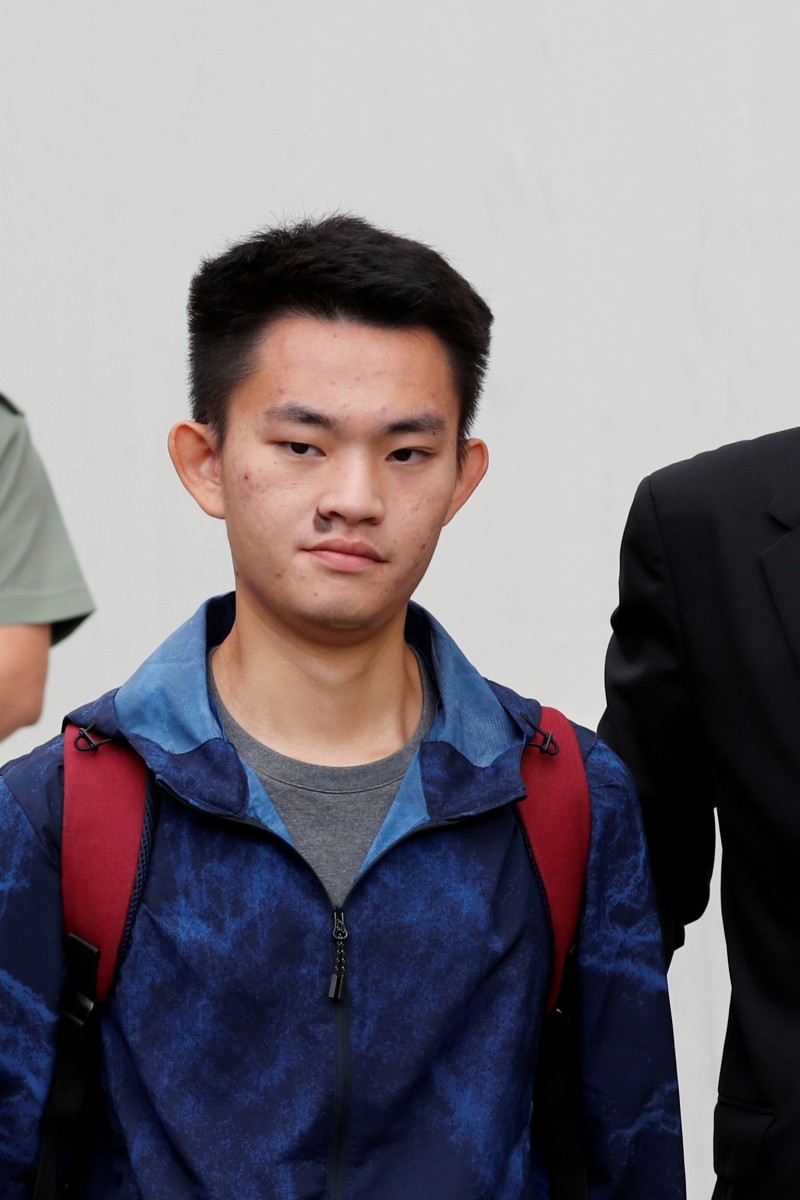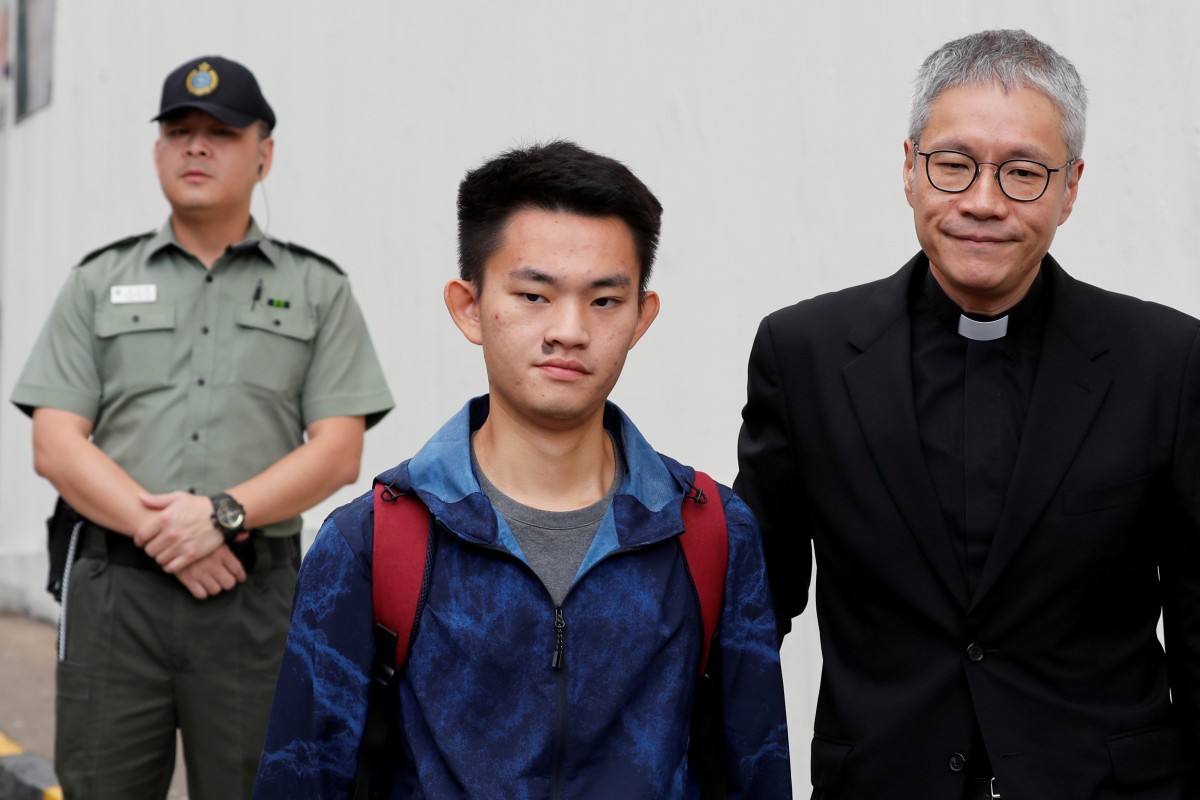
Hong Kong protests: Murder suspect Chan Tong-kai, who triggered anti-extradition bill crisis, issues public apology
The man suspected of killing his pregnant girlfriend was released from prison yesterday morning, having served time for a different crime
 Chan Tong-kai, with Reverend Canon Peter Koon, after his release yesterday.
Chan Tong-kai, with Reverend Canon Peter Koon, after his release yesterday. The main suspect in the murder case of pregnant Hong Kong woman Poon Hiu-wing was released yesterday morning. He had served 19 months of a 29-month jail sentence for money laundering.
Chan Tong-kai, whose case sparked the city’s extradition bill crisis, made a public apology after his release. He bowed twice and said he was willing to surrender to Taiwanese authorities.
“I am willing, for my impulsive act and things I did wrong, to surrender myself to Taiwan to face sentencing,” he said, adding that he would have to accept the consequences for the “worst mistake” he had ever made.
What are the 'five demands'? What do protesters want?
Reverend Canon Peter Koon Ho-ming, an Anglican priest who had been visiting Chan weekly in jail and played a major role in convincing the Chan to turn himself in, said it was unlikely the former inmate would leave for Taiwan yesterday.
Chan is suspected of murdering his pregnant girlfriend, Poon, in Taiwan last year. Her body was found after Chan’s return to Hong Kong.
But Chan could not be sent to Taiwan despite requests from Taipei’s authorities, because there is no formal extradition agreement between the two places.
A guide to the key words you see in protest news
The city is now arguing with Taiwan about Chan’s fate. Taipei authorities first refused to take Chan, then changed their decision and requested the Hong Kong government allow their police to escort him to the island. Hong Kong officials have rejected the offer.
A local spokesman said the Taiwanese authorities’ plan to send law enforcement officers to Hong Kong showed disrespect “for Hong Kong’s jurisdictional power and is totally unacceptable”.
The extradition bill was officially withdrawn yesterday afternoon, with Secretary for Security John Lee Ka-chiu fulfilling the formal procedures in the Legislative Council.
